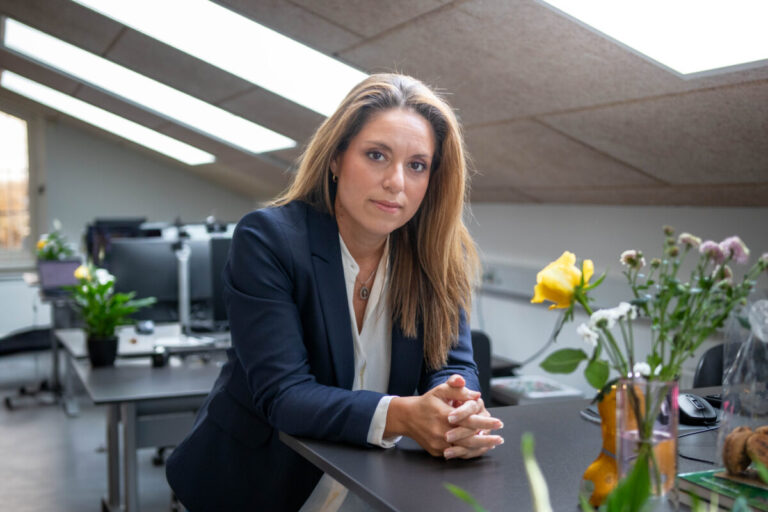This week, Women in Solar Europe (WiSEu) gives the voice to Mary Riccio-Kjærgaard, CEO and owner of the Danish PV installer Risskov Teknik & Solar Aps. She explains how the idea of leadership is still negatively influenced by cultural stereotypes and says that women can achieve more and go further simply by being ‘women leaders’.
I started my career in the renewable energy industry, specifically the wind sector, and I would say I had no trouble establishing myself. I had a great job at the time, but I wanted to work for a higher purpose – wind energy – and for people who inspired me. The industry was so focused on growth that talent was valued regardless of gender, experience, background and culture. I am aware that I have been fortunate to find a good company and to come into contact with real pioneers and strong leaders who trusted my knowledge as a young professional. They would not have considered discounting valuable talent purely on gender grounds. So the combination of a young and thriving industry with strong, innovative leaders made my start in this sector quite exciting.
We must foster corporate cultures where diversity is key and addressing the gender gap, including the pay gap, is a priority. Companies can be proactive by seeking out female talent, targeting job openings for women, offering flexibility to support work-life balance, providing role models and sponsors for female employees, and being transparent about salaries and rewards.
The solar industry is more open to hiring women, and while I see the same challenges as in other more traditional industries, solar continues to outperform the benchmark, likely because its leaders are also younger. Younger generations are more open than previous generations, have diverse perspectives and focus on the greater good, including environmental issues, as well as society, family and well-being. Nevertheless, we still deal with male colleagues, male customers and even male business partners who expect to negotiate and do business with another man, and who often patronize and even disrespect women. It really takes strong leadership and courage to stand up for our female colleagues. But we must!
As a manager, I have personally never been called “bossy” or experienced an authority gap with male colleagues. But I have to admit that early in my career I tended to act and perform “like a man” – perhaps because the stereotype of the boss was a man. I was born and raised in South America and worked in Denmark, out of my comfort zone, but I jumped with my eyes wide open. I was determined to win and took the challenges step by step. I learned that I could achieve more and go further by being a female leader. I received help along my path, either naturally or actively looking for it. All of this help was to recognize who I was, the value I could add, and what I could represent to the organizations I worked with.
In our company, focused on C&I Solar, finding female manual workers is a challenge. We trust women, their quality of work, their passion and above all their commitment, and despite our efforts to tailor vacancies to women, we struggle to receive applications, especially for system installation, sales and digital solutions. There are competent women available to join us in those areas, but women fear that companies will not meet their needs in such jobs. Change is slow – too slow, but we must control and fight the battle with the feminine characteristics that make us great mothers, wives, sisters, friends and great professionals.
The emphasis and responsibility is on the readers of these words to give women a chance. And to my next female colleague I say: “Manage your next contribution to the green path; apply for the next opening; you might be surprised!”
Mary has built a 25-year career working with a wide range of organizations, from large corporations to dynamic start-ups. Her background includes engineering, strategy, change, project and supply chain management and reflects her versatile expertise. Some of Mary’s notable achievements include leading an agricultural investment in Argentina, with a focus on digitalization and partnerships. At Scanvægt International Group she led the Cajas Negras national project, demonstrating her skills in change and project management. During her time at Siemens-Gamesa, Mary implemented cost-saving measures and a company-wide strategy to reduce offshore wind costs, in addition to leading a digital transformation. At the Grundfos Industry Division, she improved efficiency, achieved cost savings and made a significant contribution to the Sustainable Development Goals (SDGs). Mary’s achievements go beyond just figures such as quadrupling turnover or realizing national projects. She understands the critical role of human capital in increasing efficiency, revenue and contributing to the SDGs.
Interested in participating Maria Riccio-Kjærgaard and other female leaders and industry experts at Women in Solar Europe? Find out more: www.wiseu.network
The views and opinions expressed in this article are those of the author and do not necessarily reflect those of the author pv magazine.
This content is copyrighted and may not be reused. If you would like to collaborate with us and reuse some of our content, please contact: editors@pv-magazine.com.


